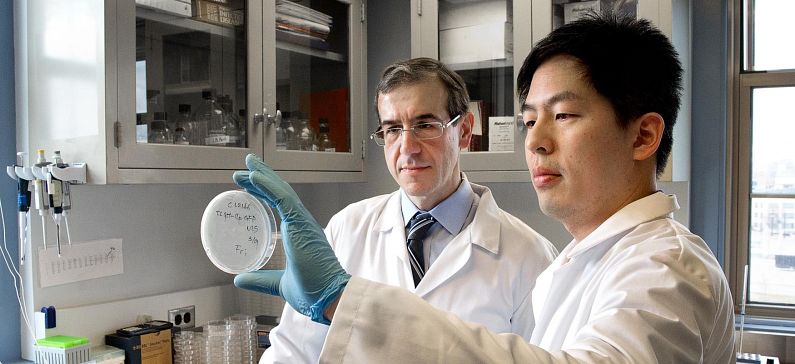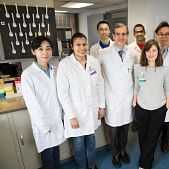
Greek researcher discovers potential antibiotic to kill superbugs
A study published Wednesday in Nature outlines the discovery of a new type of antibiotic that shows promise in countering the growing threat of drug-resistant “superbugs,” which have emerged as a global public-health crisis.
Senior study author Dr. Eleftherios Mylonakis, chief of infectious diseases at Lifespan’s Rhode Island and Miriam hospitals, described the gravity of the superbug threat by citing a World Health Organization projection that “by 2050, superbugs will surpass cancer as the global number-one killer. This is a frightening situation. It affects more than individuals in the hospital or the very ill or the very old. It affects everybody.”
The study, “A New Class of Synthetic Retinoid Antibiotics Effective Against Bacterial Persisters,” describes research that identified two synthetic compounds related to Vitamin A that were able to kill methicillin-resistant Staphylococcus aureus, or MRSA, a variety of bacteria that has developed resistance to traditional antibiotics.
Mylonakis said research such as this follows major pharmaceutical companies’ decision to abandon development of new antibiotics, given the short evolution of superbugs compared with the much longer process of study and clinical trials required for new medications to reach the market.
“In a simplistic way, it’s a math problem,” Mylonakis said. “It takes the bugs an average of two years to develop resistance to antibiotics. It takes more than 10 to 15 years of work to get an antibiotic into clinical practice.”
With what the study authors describe as “a low probability of resistance selection,” retinoids have the potential to continue their effectiveness past the two-year average, which would be appealing to drug firms considering investing in their development.
Mylonakis, a professor at Alpert Medical School of Brown University, collaborated on the study with other scientists at Brown, Harvard University, Emory University, Northwestern University, Massachusetts Eye and Ear Infirmary and Massachusetts General Hospital.
Dr. Mylonakis is recognized for his research on the study of microbial pathogenesis and host responses. His studies have included clinical and laboratory studies and the use of mammalian and invertebrate model hosts. These surrogate hosts fill an important niche in pathogenesis research and provide us with a unique opportunity to identify novel antimicrobial compounds and study basic, evolutionarily conserved aspects of microbial virulence and host response. His investigations have identified novel virulence factors, cross kingdom pathogen-pathogen interactions, novel agents and evolutionarily conserved traits that are involved in host virulence and immune responses during fungal infection. Taken in their totality, these results indicate that a common, fundamental set of molecular mechanisms is employed by pathogens against a widely divergent array of metazoan hosts. His research has resulted in >200 peer-reviewed scientific articles. Mylonakis, has edited five books on infectious diseases and is the founding editor-in-chief of Virulence.









